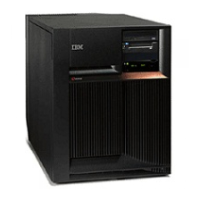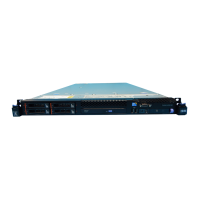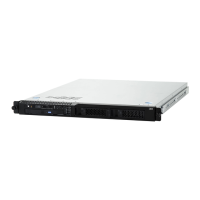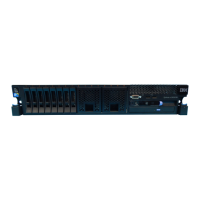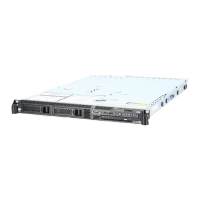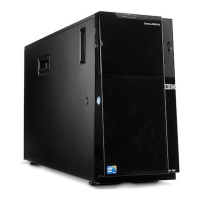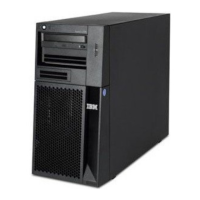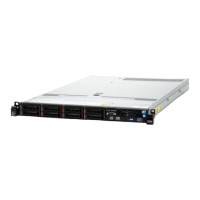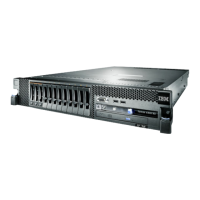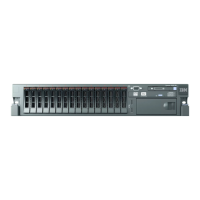c. Select the IPL type and mode that are used by the customer (see iSeries
Service Functions).
d. Start an IPL by powering on the system.
Does the IPL complete successfully?
Yes No
↓ This is a new problem. Go to “Starting Point for All Problems” on
page 4.
This ends the procedure.
6. The repair action corrected the problem.
This ends the procedure.
7. Have disk units been moved from another I/O card to this I/O card?
Yes No
↓ Ask your next level of support for assistance.
This ends the procedure.
8. Display the Product Activity Log entry that is associated with this SRC by
performing one of the following:
v If you can enter a command at the console, select system service tools (SST)
(see “System Service Tools (SST)” in the iSeries Service Functions
information). Select the Product activity log option and display the Product
Activity Log entry for this SRC. Press the F9 key for address information in
the Product Activity Log entry for this SRC. This is the I/O card address.
v If you cannot enter a command at the console, perform an IPL to DST (see
“Dedicated Service Tools (DST)” in the iSeries Service Functions information).
Select the Product activity log option and display the Product Activity Log
entry for this SRC. Press the F9 key for address information in the Product
Activity Log entry for this SRC. This is the I/O card address.
If you cannot perform a type A or B IPL, perform a type D IPL from
removable media. Select the Product Activity Log option and display the
Product Activity Log for this SRC. The direct select address (DSA) of the
I/O card is in the format BBBB-Cc-bb:
– BBBB = hexadecimal offsets 4C and 4D.
– Cc = hexadecimal offset 51.
– bb = hexadecimal offset 4F.
The unit address of the I/O card is hexadecimal offset 18C through 18F.
For a type A or B IPL, view the “Additional Information” to see the
formatted log information. For a type D IPL, see “More Information from
Hexadecimal Reports” in the iSeries Service Functions.
Record the addresses that are not 0000 0000 for all devices listed.
Note: There may be multiple displays of data. Ensure that you check all
displays that are associated with the error.
9. See “Locations and Addresses” on page 705 and find the diagram of the
system unit, or the expansion unit. Then find the following:
v The card slot that is identified by the I/O card direct select address (DSA)
and unit address. If there is no IOA with a matching DSA and unit address,
the IOP and IOA are one card. Use the IOP with the same DSA.
SDIOP PIPs
Chapter 3. Problem Isolation Procedures (PIPs), Failing Items, and Symbolic FRU Isolation 423

